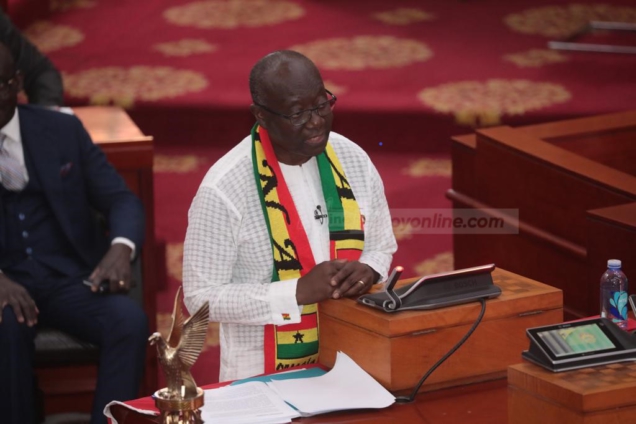The Minister of Finance, Ken Ofori-Atta has indicated in the 2023 budget statement that Ghana’s public debt has increased by GH₵93 billion ($6.53 billion at current rate) due to the depreciation of the Ghanaian cedi alone since the beginning of 2022.
Meanwhile, the bailout Ghana is seeking from the International Monetary Fund (IMF) amounts to just $3 billion compared to the addition to public debt due to depreciation.
According to the budget statement, the cedi has depreciated by 53.8% and 54.2% against the dollar as of October 2022 and November 2022. The massive depreciation has been due to the inability to access the International Capital Market due to the continuous credit rating downgrades. The tightening of domestic financing conditions and the increasing cost of borrowing has also contributed to further depreciation.
The Minister indicated that there has been a high demand for forex to finance the import bill, including the import of crude, and the financing of electricity has worsened the performance of the cedi and led to the high depreciation. Ghana’s import bill, the budget stated, exceeds US$10 billion annually. Considering the low foreign earnings, it has been difficult to meet the import requirements including crude oil and petroleum products of about US$400m (GH₵4.80 billion) a month. The Ministry of Finance also requires about US$1.0 billion per year to finance the lights in homes and workplaces.
Ghana and the IMF
Ghana is seeking a three-year Extended Credit Facility (ECF) programme of $3bn at the International Monetary Fund. This means that this potential bailout cannot even finance the debt accumulated as a result of the depreciation of the Ghanaian cedi.
The ECF is the Fund’s main tool for medium-term support to countries facing prolonged balance of payments problems, similar to Ghana’s. The duration of such arrangement is between three to four years and extendable to five years. In 2014, Ghana requested a similar arrangement and it lasted four years. However, the level of access and the final programme design is ultimately decided by the IMF Executive Board.
According to the IMF, an IMF-supported programme aims at providing space for Ghana to implement policies that will restore macroeconomic stability and strengthen debt sustainability while protecting the most vulnerable. The programme could help create the conditions for inclusive and sustainable growth and job creation. This will help anchor policy credibility, alleviate exchange rate pressures and provide catalytic effect on financing.
Latest Stories
-
Judge orders Columbia student Mahmoud Khalil released on bail
1 hour -
Dr. Peter Terkper declares GNAFF Presidency bid with bold vision
2 hours -
Teenage pregnancy declines in Akatsi North as leaders call for sustained action
3 hours -
NIB, NACOC destroy $350m worth of cocaine following court order
3 hours -
Keta-Akatsi Catholic Diocese honours health workers at 33rd World Day of the Sick
4 hours -
Suspect arrested for burglary and theft at Kasoa Nyayano
4 hours -
US resumes visas for foreign students but demands access to social media accounts
4 hours -
Indian High Commission collaborates with VRCC and UHAS to champion physical, mental wellness in Volta Region
4 hours -
This Saturday on Newsfile: Galamsey fury, NPP early primaries and effects of Israel-Iran war
5 hours -
African Heads of States, Caribbean and Global Business Leaders to gather in Abuja Nigeria for 32nd Afreximbank annual meetings
5 hours -
GES, Brilliant Educational Consult train teachers in Kumasi to boost their competencies
6 hours -
DIPPER Lab launches IoT Training Programme to equip students with practical tech skills
6 hours -
China reaffirms one-China principle, commends Ghana’s historic support
6 hours -
Road safety: Experts push for automatic speed monitoring systems to curb over-speeding
6 hours -
Hearts of Oak explain decision to appoint Didi Dramani as head coach
6 hours

